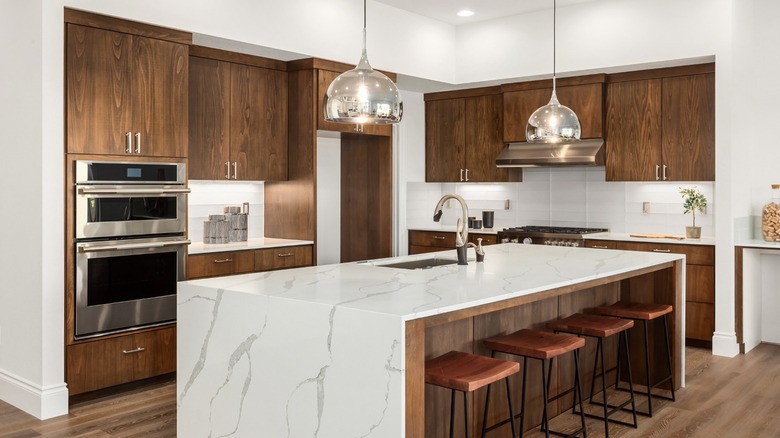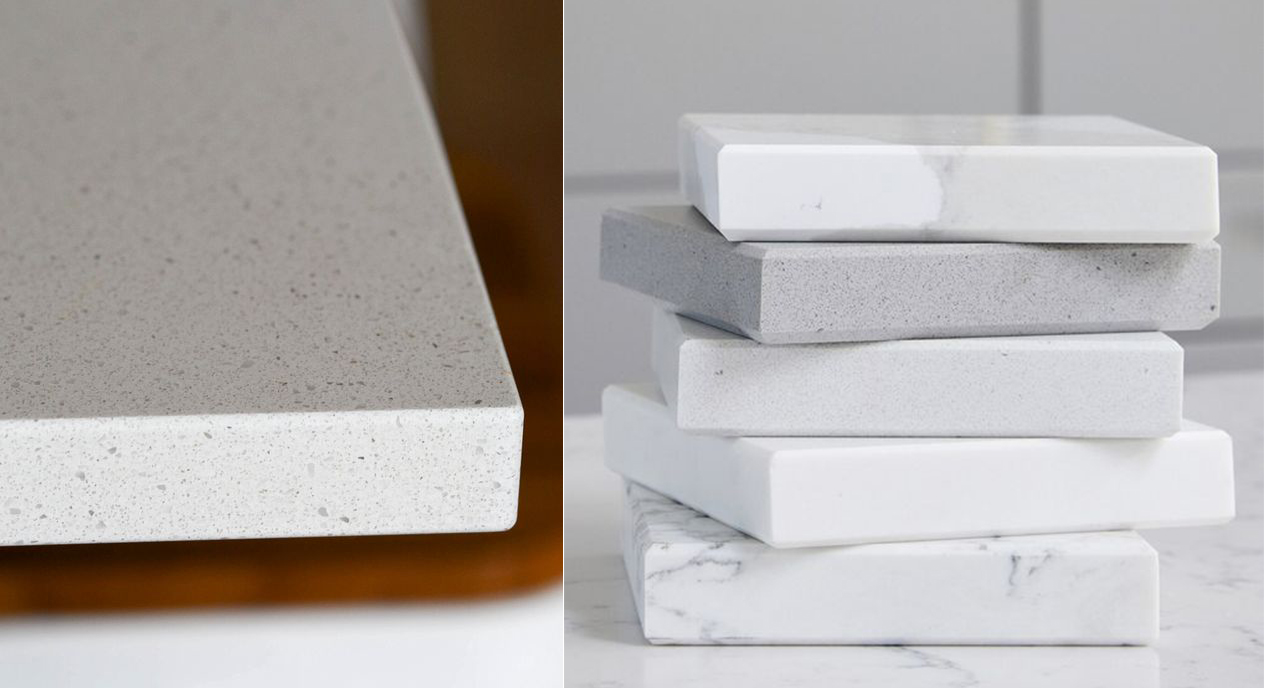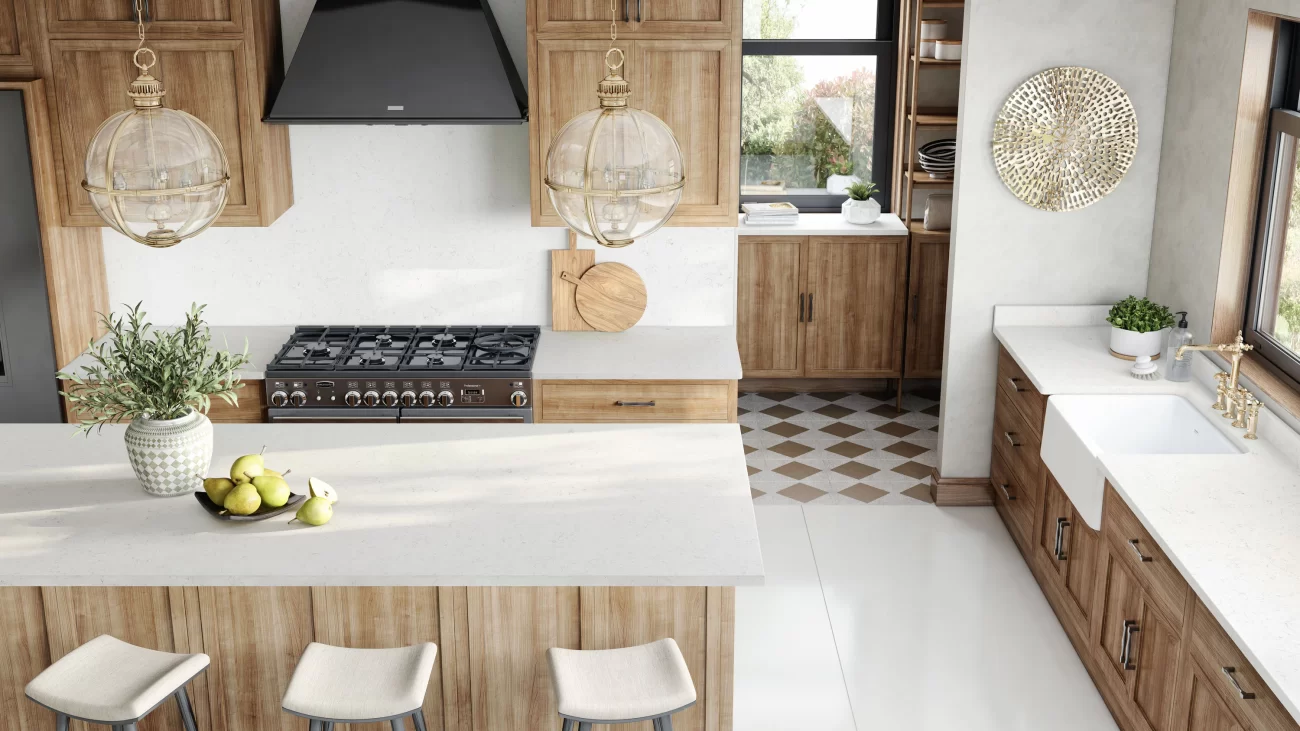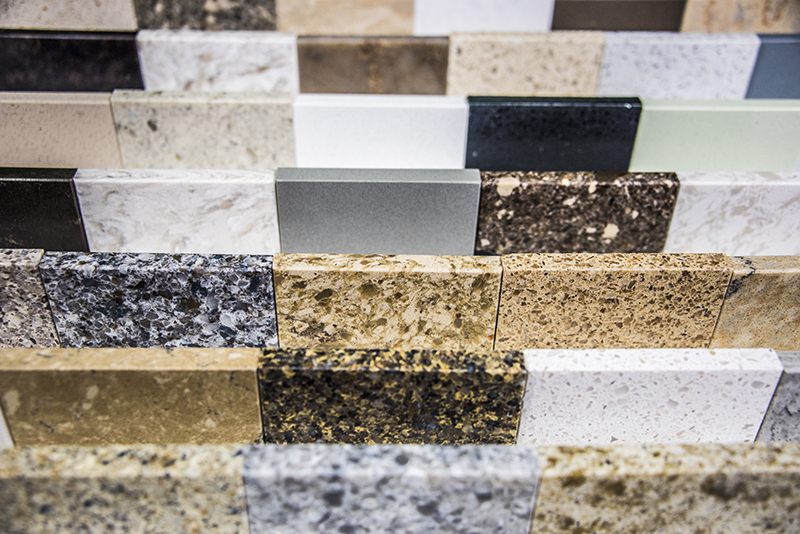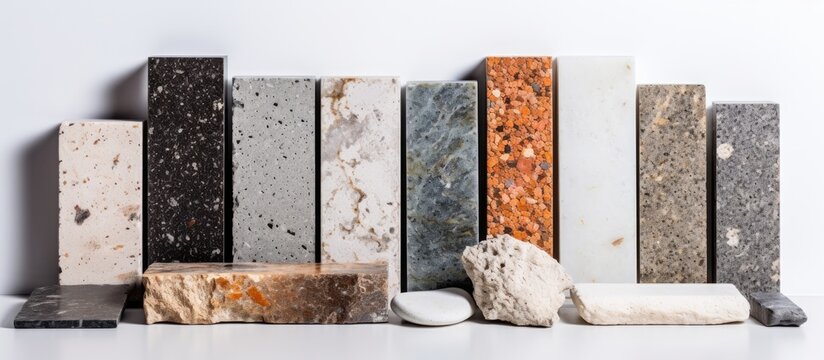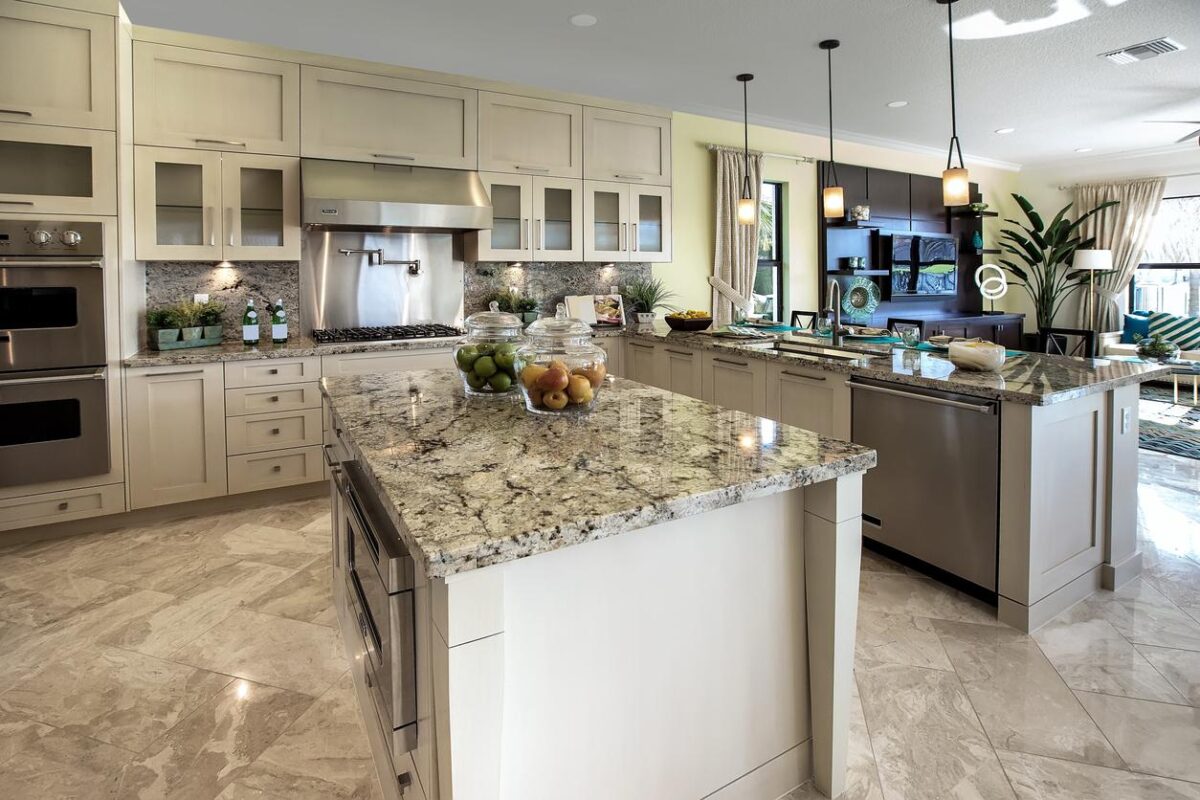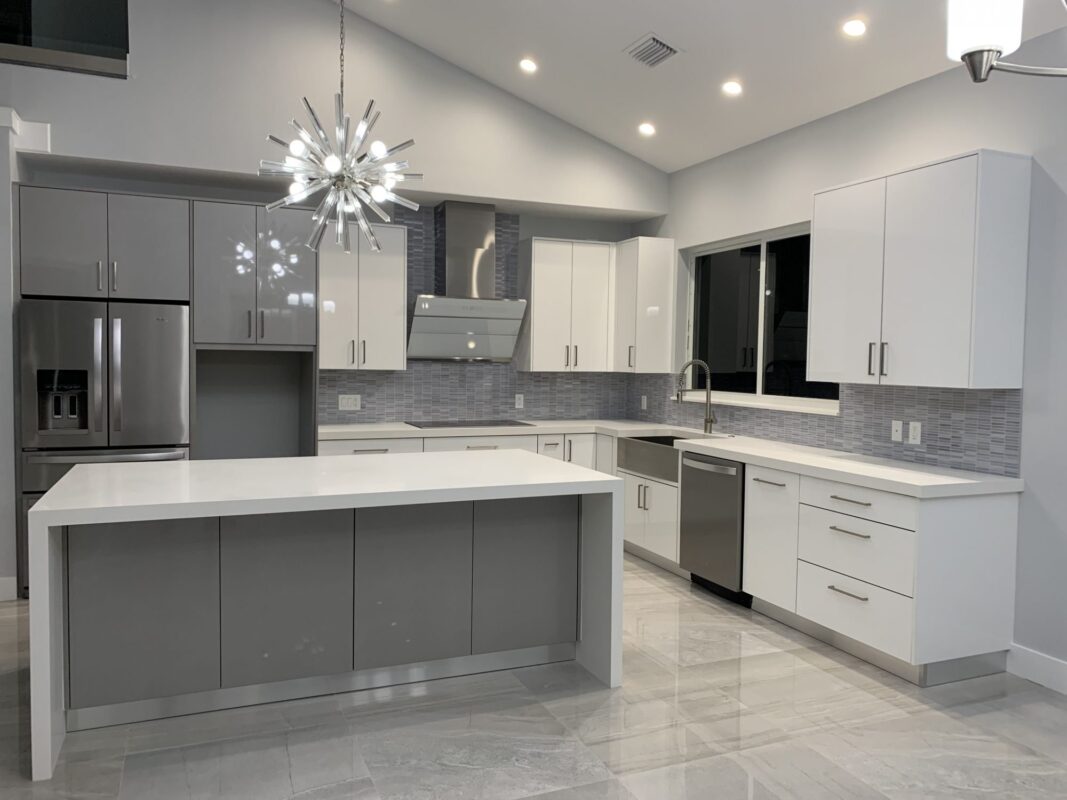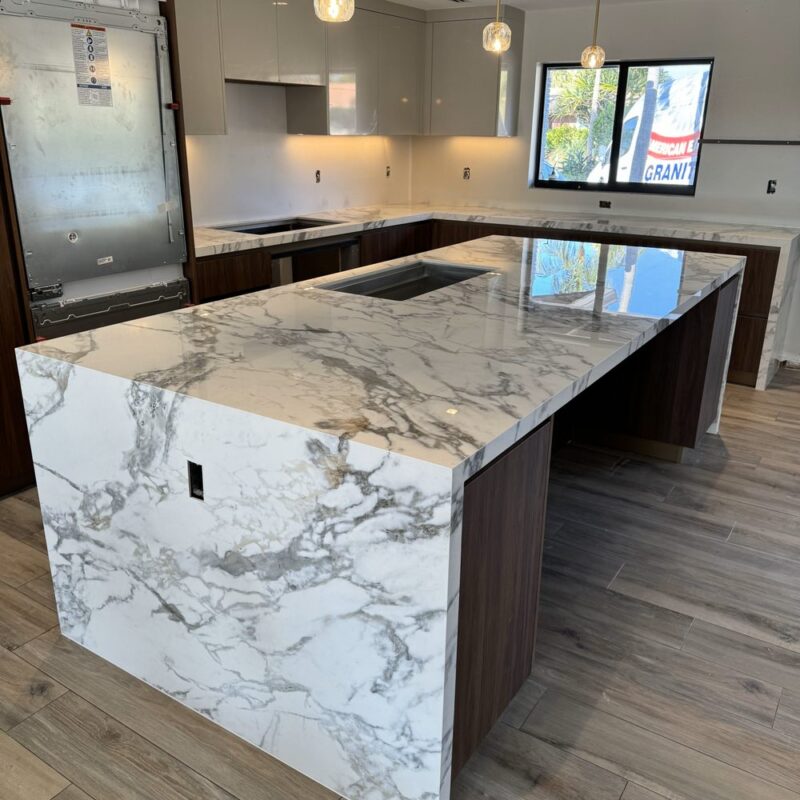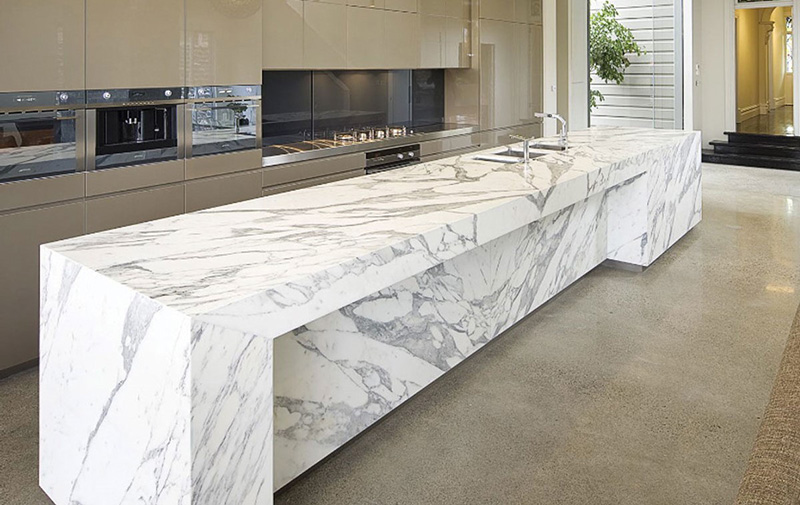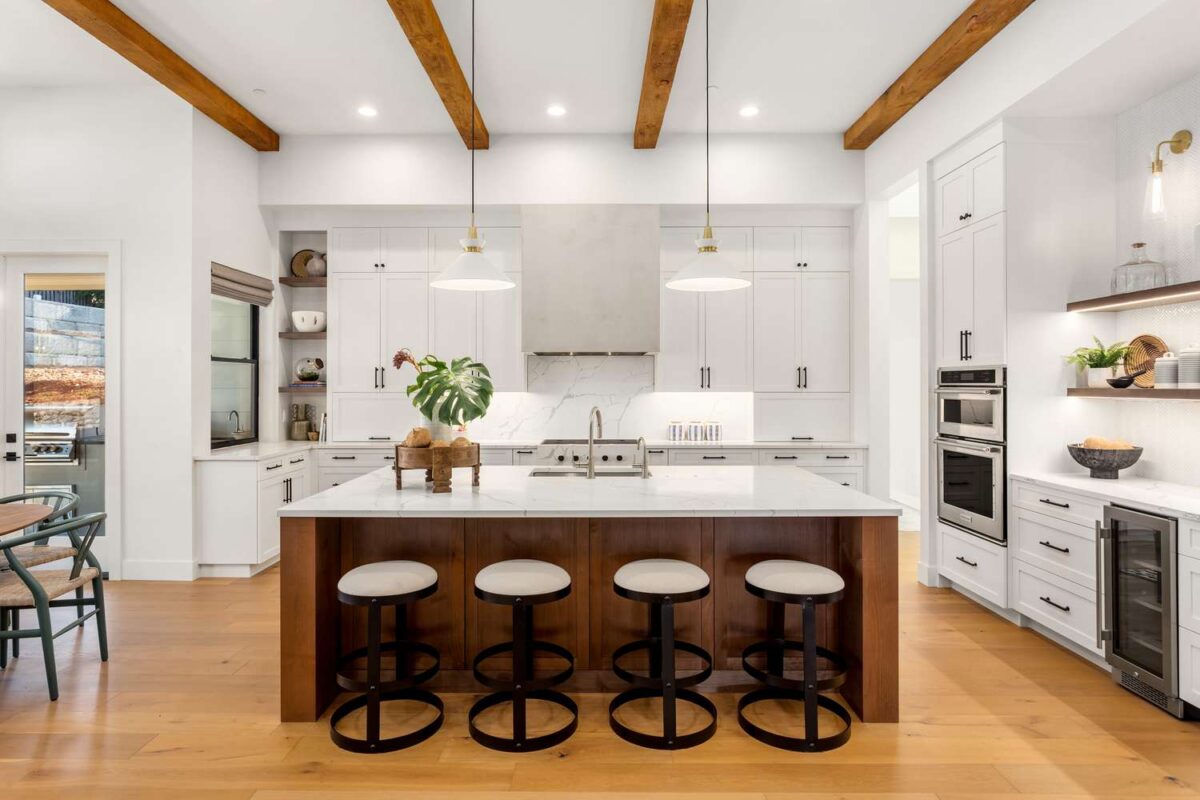In the world of kitchen design, countertops play a pivotal role in both aesthetics and functionality. When it comes to selecting the perfect countertop material, two popular choices often come into consideration: quartz and concrete. Both materials offer unique qualities and characteristics, and your choice can significantly impact the overall look and feel of your kitchen. In this article, we’ll dive deep into the world of countertops and compare quartz and concrete to help you make an informed decision for your next kitchen renovation project.
Introduction
Choosing between concrete and quartz countertops can be a challenging decision. To make an informed choice, let’s start by understanding what each material entails.
Quartz Countertops: The Engineered Marvel
What is Quartz?
Quartz countertops are engineered stone surfaces made by combining natural quartz crystals with resins and pigments. This combination creates a durable and non-porous material that is resistant to staining, scratching, and heat.
Exploring the Color Palette
Classic Whites
- Arctic White: A pure, snowy white that brightens up any kitchen.
- Carrara White: Soft gray veining on a white background for a timeless look.
Earthy Tones
- Sandy Beige: A warm, sandy hue reminiscent of beachfront elegance.
- Cappuccino Brown: Rich brown with subtle veins, adding warmth to your space.
Bold Statements
- Midnight Black: A dramatic black with fine white specks for a modern touch.
- Ruby Red: Make a bold statement with deep red quartz countertops.
Cool Blues
- Ocean Blue: Reflect the tranquility of the sea with this calming shade.
- Icy Blue: A lighter blue option for a refreshing vibe.
Advantages of Quartz Countertops
- Exceptional durability.
- Low maintenance and easy to clean.
- Wide range of colors and patterns.
- Resistance to bacteria and mold growth.
- Uniform appearance.
Disadvantages of Quartz Countertops
- Relatively higher cost compared to some alternatives.
- Susceptible to discoloration from direct sunlight.
Concrete Countertops: A Handcrafted Beauty
What are Concrete Countertops?
Concrete countertops are handcrafted on-site or in a workshop. They offer a unique, customizable appearance, as the color, texture, and finish can be tailored to your preferences.
Advantages of Concrete Countertops
- Customizable design.
- Unique and organic look.
- High heat resistance.
- Long-lasting with proper maintenance.
- Ideal for creating integral sinks.
Disadvantages of Concrete Countertops
- Prone to staining without proper sealing.
- Requires regular resealing.
- Initial installation may take longer.
- Can develop hairline cracks over time.
Cost Considerations
When comparing costs, quartz countertops generally have a higher upfront price tag due to their manufacturing process. Concrete countertops, while labor-intensive, can be more cost-effective, especially if you’re willing to get creative with the design.
Durability and Maintenance
In terms of durability, both materials are excellent choices, but quartz has a slight edge in terms of resistance to staining and scratching. Concrete countertops, however, can withstand high heat better. When you choose quartz countertops near me, you benefit from the convenience of local availability. This means shorter lead times and easier access to samples and showrooms for a hands-on experience.
Aesthetics: Design and Customization
Concrete countertops offer endless design possibilities, making them an excellent choice for those seeking a unique and personalized look. Quartz, on the other hand, provides a more uniform appearance.
Environmental Impact
Quartz countertops are manufactured, which can have an environmental footprint due to the energy used in production. Concrete countertops, when sourced locally and made with eco-friendly additives, can be a more sustainable choice.
Installation Process
Concrete countertops typically take longer to install, as they require custom crafting and curing time. Quartz countertops are quicker to install, making them a more convenient option.
Resale Value
Quartz countertops are often seen as a premium feature in homes and may have a slight edge when it comes to increasing the resale value of your property.
Conclusion
Ultimately, the choice between quartz and concrete countertops depends on your preferences and priorities. Quartz offers durability and low maintenance, while concrete provides unmatched customization. Consider your budget, lifestyle, and design preferences when making your decision. Visit our countertop showroom and see our grand selection. One of our designers will be happy to assist with a Free consultation!
FAQs
- Are quartz countertops more expensive than concrete countertops?
- While quartz countertops tend to have a higher upfront cost, concrete countertops can be more cost-effective in certain situations.
- Do concrete countertops require more maintenance than quartz?
- Yes, concrete countertops require regular sealing and maintenance to prevent staining and maintain their appearance.
- Can I install concrete countertops myself?
- Concrete countertop installation is best left to professionals due to its complexity.
- Are quartz countertops more resistant to heat than concrete?
- Yes, quartz countertops are generally more heat-resistant than concrete.
- Which countertop material is more environmentally friendly?
Concrete countertops can be more environmentally friendly if sourced and manufactured sustainably.


